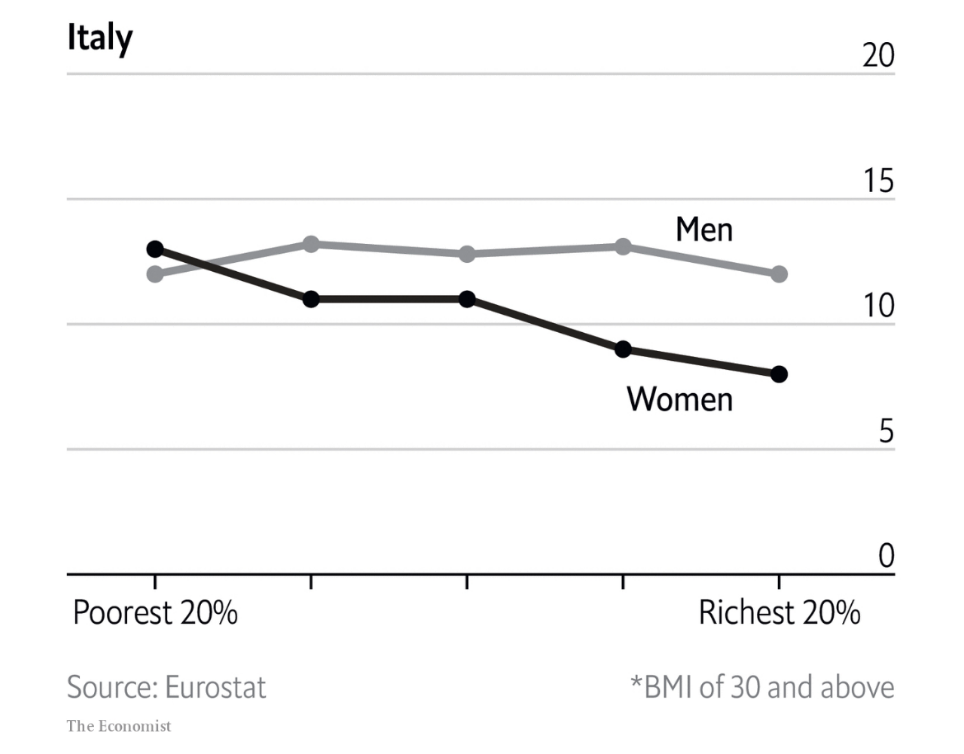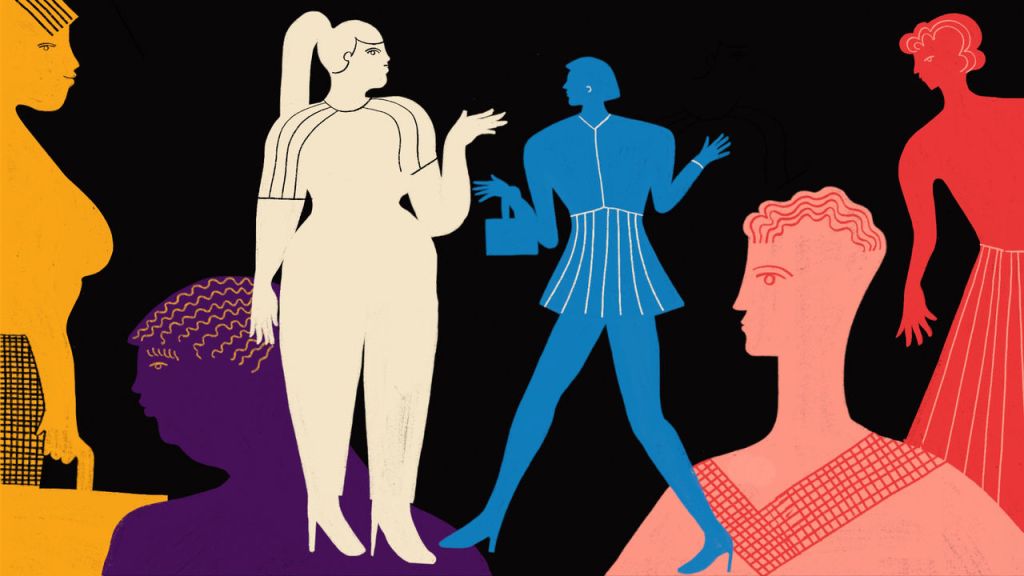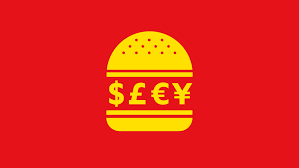Previous generations of feminism have taught women to free themselves from self-admiration, just as they had freed themselves from domestic slavery and a life circumscribed by childbearing; however, a woman being greatly affected by a comment about her weight is not rare.
Mireille Guiliano, the CEO of Veuve Clicquot, published “French Women Don’t Get Fat”, her bestselling book on how to lose weight and stay slim “the French way”. In the book, she describes her discomfort as a teenager when she gained weight while spending a summer in America. Her insecurity reaches its peak when she returns home to France and her father, instead of rushing to hug her, tells her she looks like a sack of potatoes and that she would not have a ‘real’ career if she remains looking this ‘lazy’. She immediately adopts a new diet tipping the scales back in her favour.
Incidents like these are not only personal but also universal.
It attests to the coercion used on women to look like an ideal in order to be successful. That ideal however has changed over time.
During the Renaissance, curves were considered potent and would be shown off; however, in today’s age it seems to be defined as ‘thinness’.
For every woman to accomplish the task of gaining such a body, takes extreme rigour and can be seen as strenuous by most. But why do women go behind achieving this body type if it is of such great cost?
To say the least, it is because being thin helps intelligent women become rich!
Income and weight correlation-
“It is unthinkable that a woman bent on ‘having it all’ would want to be fat, or even plump,” wrote Helen Gurley-Brown, the editor of Cosmopolitan magazine in the 1980s and 1990s in her book.
Such opinions were more palatable four decades ago. But in terms of the economic situation today, sadly, only a diminutive change can be seen. The narrative now clasps body positivity and does away with dieting.
“There’s definitely a certain look, and if you’re going to get into the race then you want to look like a winning horse,” says Alexandra Waldman, the co-founder and creative director at Universal Standard. The significance placed on one’s body is now ratified by every corporate woman and women in general; however, their fate is fundamentally beyond their control.
Upholding the myth that intelligent, ambitious women who can determine their value in the labour market based on their intellectual ability or education need not be concerned with their appearance; can be nearly debunked after looking at the data on how their weight affects their wages or income. Poverty could be used as an explanation as to why people are overweight or obese. Wealthier people tend to maintain a lower weight; those dynamics, however, seem to only affect women.

In advanced countries, the population levels are driven almost entirely by women.
In Italy, the relationship between income and weight or obesity is flat for men and downward-sloping for women. Concluding that wealthier women tend to be much thinner than poorer women but richer men weigh about as heavy as poor men.
It may be argued that men are overrepresented in physically demanding, lower-paying sectors like construction. Additionally, to play a particular character, certain women, like actresses, may be explicitly needed to be slim for a role. However, it seems unlikely that either dynamic fully accounts for the conspicuous divergence.
This gender gap in the relationship between income and weight, which cannot simply be explained by other differences between men and women, leads to the possible understanding that perhaps women need to be thin in order to be rich.
How weight costs them-
According to expert studies, overweight or obese women receive salaries less than their slimmer colleagues, although obese men and males within the medically designated normal range earn very similar amounts. In accordance with the research, earnings for overweight women are lower. An obese lady bears serious repercussions, sacrificing around 10% of her salary.
Patricia Roehling, a professor of psychology at Hope College, estimates that only 5-20% of female CEOs are plus-sized, despite the fact that 67% of women in America are size 14 or larger. The effect is also gendered: that range is 45-61% for male CEOs.
The implication of her study further suggests that weight discrimination is particularly punishing for female executives, which just adds on to the already struggling corporate women having to contend with the nefarious, “glass ceiling.”
The problem heightens as even by controlling other factors, the starting wages are much lower for these women and throughout their working careers, these women receive fewer raises and promotions as a whole.
Devoting time to education is considered to be an economically rational decision as it has clear returns in the labour market, for future wages and job prospects. In the same manner, it appears now to be economically rational for women to pursue being lean where the returns for men aren’t the same as returns for women.
According to some surveys, girls as young as six recognise the expectation that they should be thin. Then adolescents “overwhelmed by sudden expectations of beauty, transmit anorexia and bulimia to one another like a virus,” writes Ms Tolentino.
Why do women and girls suffer from poor self-esteem about themselves and why do they feel obligated to be slender when they do not look dreadfully incomplete? Perhaps an explanation for why women are self-conscious is because they rival themselves with the gazelles who ornate magazine covers, leading these women to believe that these images are genuine and feasible. When they were younger, perhaps their parents or friends made a weight-related comment. In addition to those pressures is the powerful incentive of the market: women accurately perceive that failure to lose weight or be thin will literally cost them their income.
The change is that women are caught in this despairing whirlpool impossible to abscond. Most women try to conform. Some choose not to. Many just fail. But whatever decision is made whichever path is chosen, it seems to come at a great cost!
-Devina Muzumdar






Leave a comment